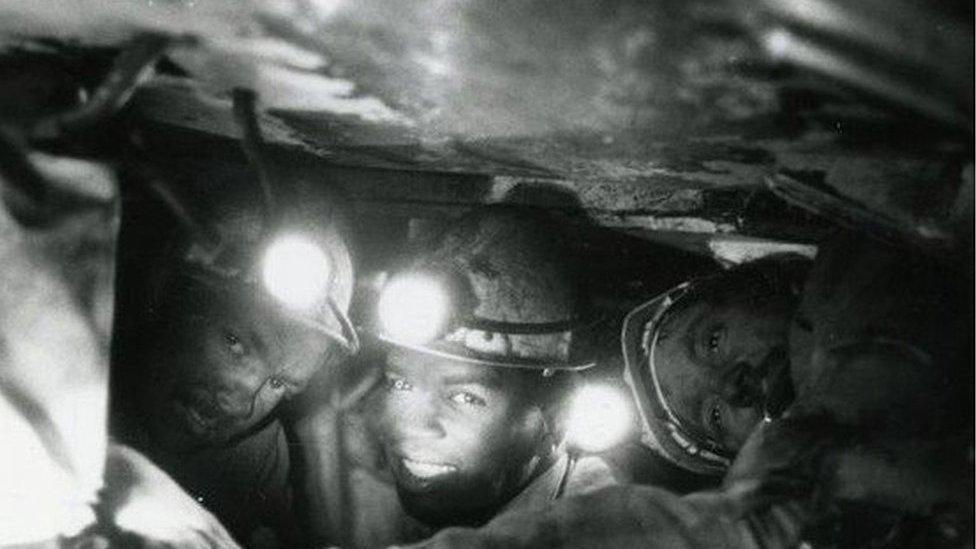Black miners in Wales: Ex-footballer explores little-known history
- Published
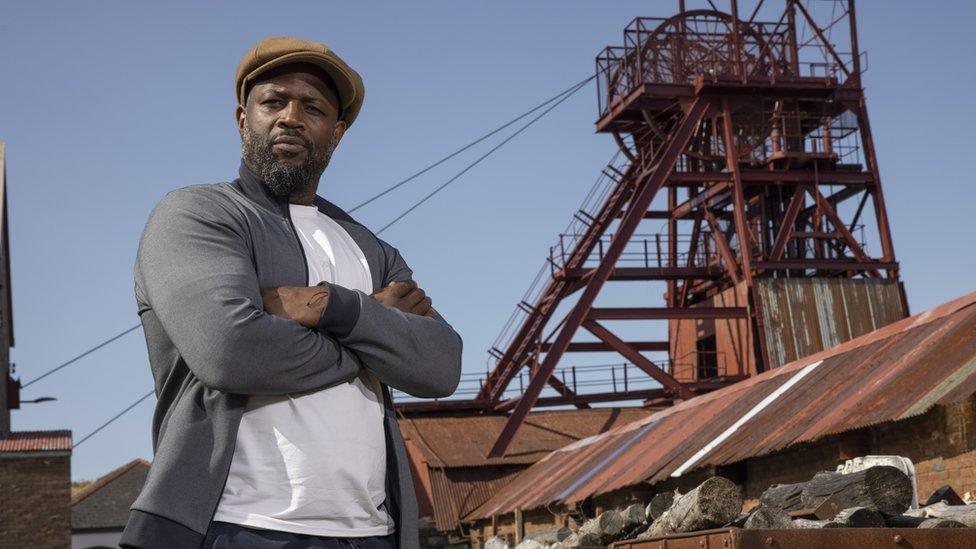
Nathan Blake won 29 caps for Wales and played for numerous top flight football clubs
Black miners played an integral role in the story of the Welsh coal industry, but it's a story that has rarely been told.
Historian Norma Gregory, who has been exploring the story of black miners across the UK, says she was initially told there had been none working in Welsh collieries.
But through a "very hard, long search", Ms Gregory believes about 200 black miners worked in the country from the 1800s onwards.
Former Wales international footballer Nathan Blake features in Wales' Black Miners, a documentary in which he searches for these forgotten men.
Mr Blake was shocked to discover how little he knew about the history of black miners and their work in the pits of south Wales.
"It's about understanding how we are in a minority, how black people have been made to accept racism as everyday life if they wanted to get on in life," he said.
"It's more in the background (now), but back in those days, it was prevalent everywhere. You couldn't leave the mine and go and work in the supermarket, because it was there as well."
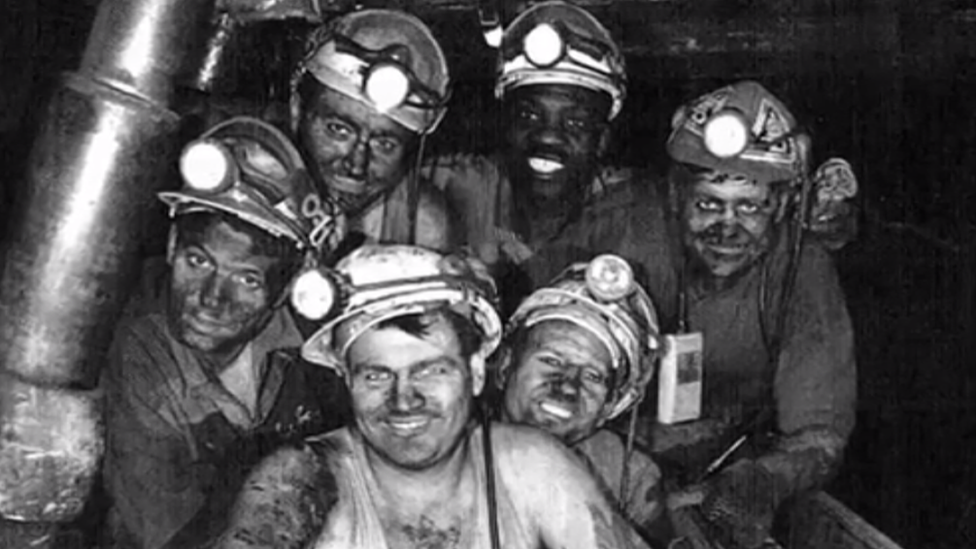
The fact there were black miners in Wales from the 1800s onwards was a surprise to Mr Blake
Mr Blake said it is something black people face to this day, with the question "where are you from?" and the assumption "you have dark skin, you can't be British".
"I'm a very proud Welshman - wearing red for my country I've shown that Wales isn't made up of just one colour," he said.
"But I feel that black miners tell us more about a multi-cultural Wales than a black footballer."
Ms Gregory said she hopes the documentary will inspire black Welsh people to find more about the history of the country they call home.
"Hopefully it will give them inspiration to ask questions and not necessarily believe everything you read or are taught at school," she said.
"We are going through a global process of reassessing our history."
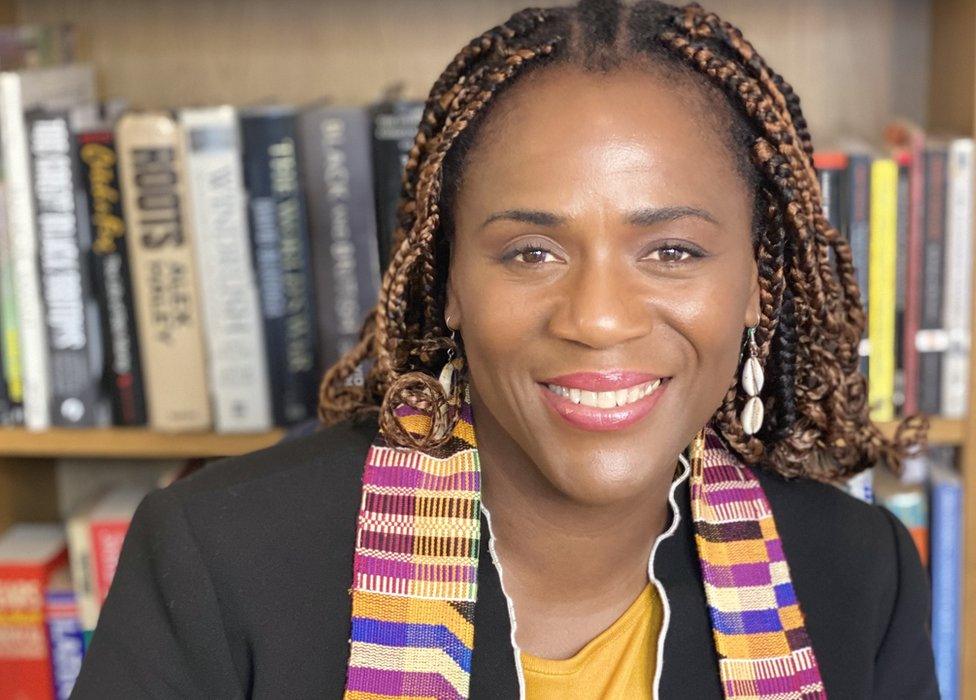
Historian Norma Gregory hopes the story will inspire black Welsh people
Mr Blake said he had since learned that his grandfather was a miner when he first moved to Cardiff from Africa.
As he attempts to track down the last surviving black miners, he travels to former pit villages and talks to former miners about their attitudes towards their black colleagues and the so-called "banter" they faced when they came to Wales.
Having experienced racism throughout his life, Mr Blake said he was able to relate to what it must have been like for black miners at the time.
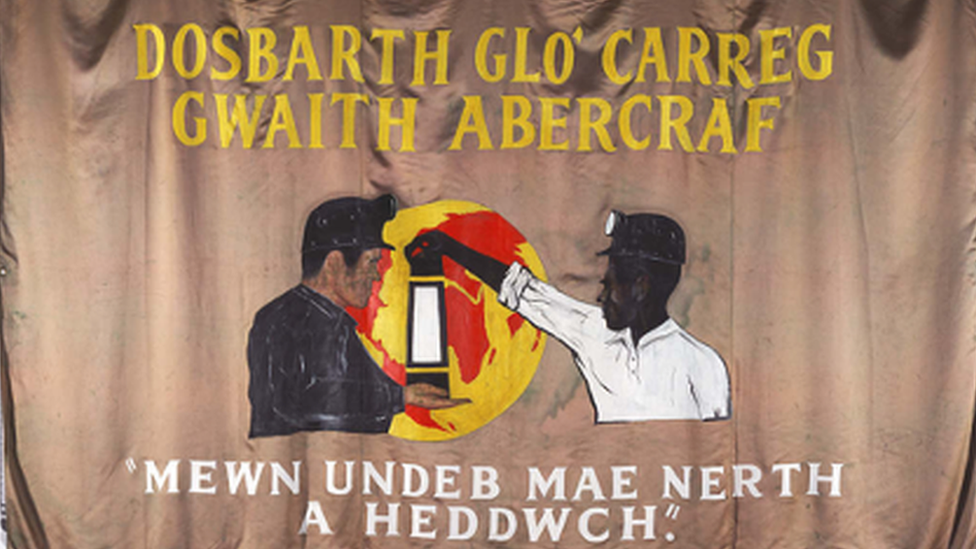
An estimated 200 black people have worked in Welsh coal mines
"They had to accept it - there was no alternative," he said. "You couldn't just go to another job. Black people had to go through a lot to get acceptance. They had to just swallow it.
"That's the most powerful thing I will take take from it because I remember as a child I was in that same position.
"I can really relate to their experiences and I have a massive amount of respect for them."
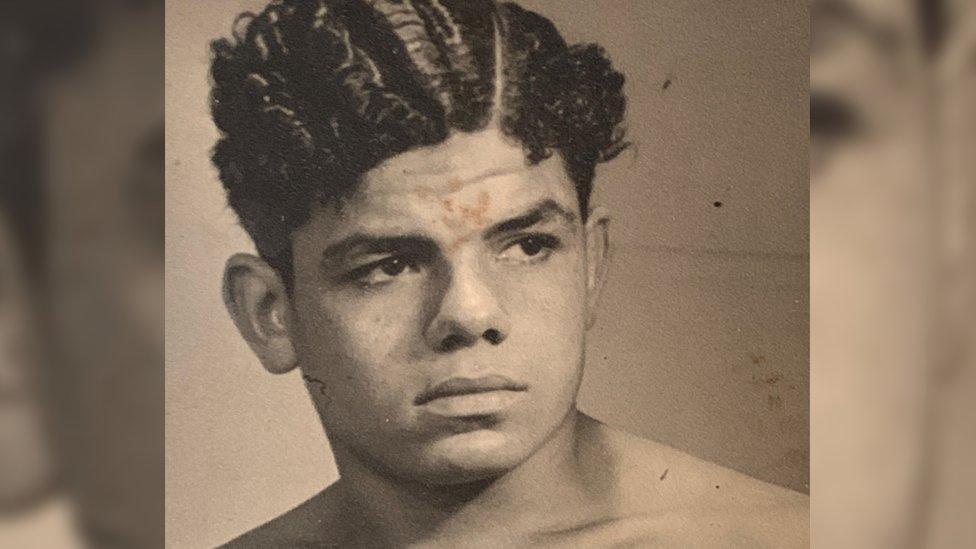
Mr Blake meets the family of Idris Phillips, from Senghenydd, Caerphilly county...
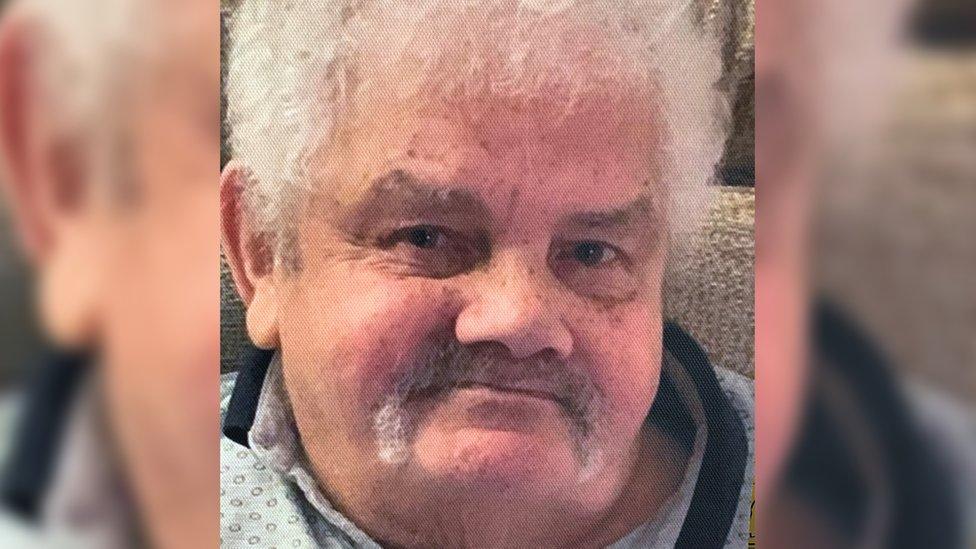
...who sadly died of Covid-19 during filming
Mr Blake meets the family of Idris Phillips, from Senghenydd, Caerphilly county, who died of Covid-19 during filming.
Mr Phillips went down the mine at 14 and, despite facing racism in his community, rose to a management position and was one of the coordinators of the rescue at the site of the Aberfan disaster.
His family explain how much he loved his job, how proud he was of mining and how he would say "we're all black underground".
Wales' Black Miners airs on BBC One Wales at 20:30 BST on Monday, 5 October, and BBC iPlayer shortly after.
- Published19 February 2018
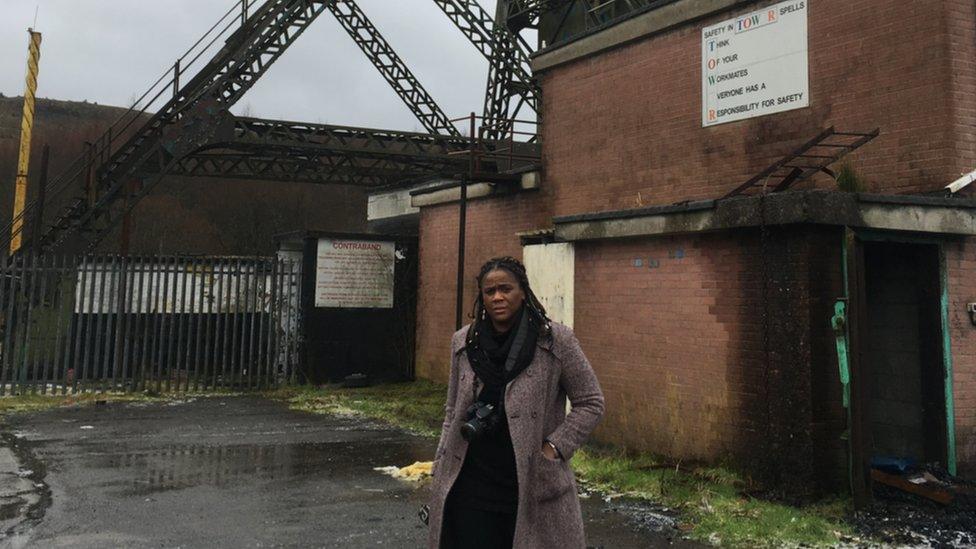
- Published12 September 2016
